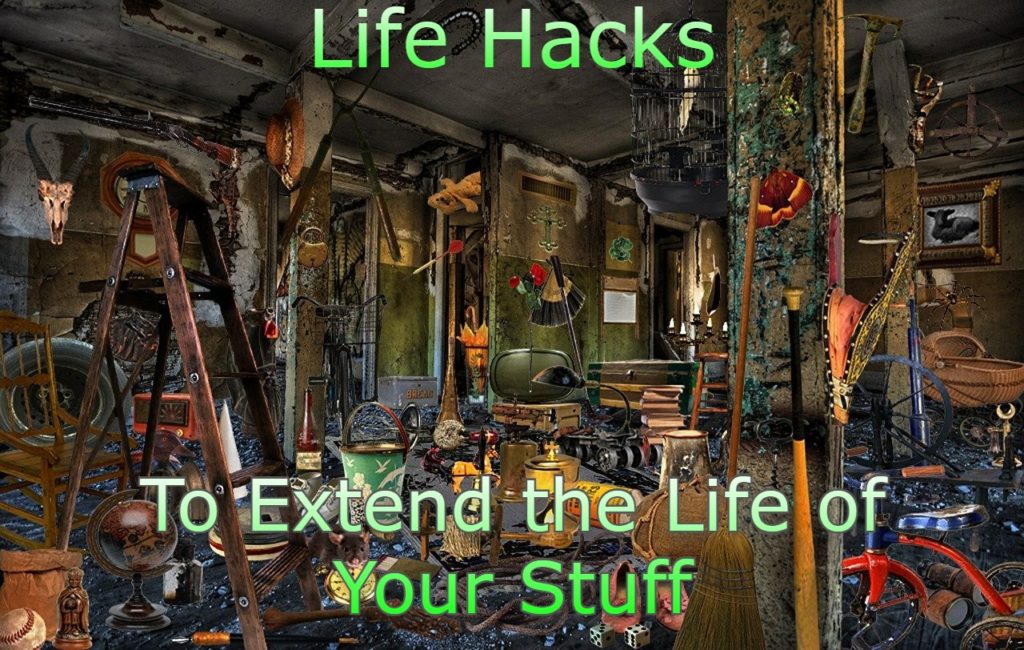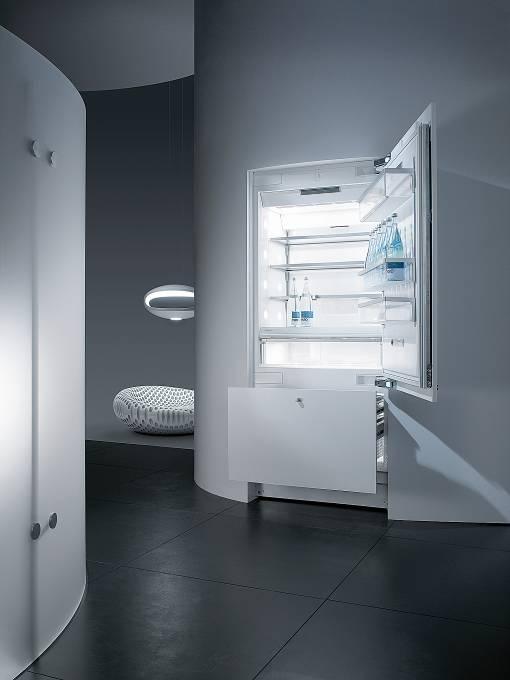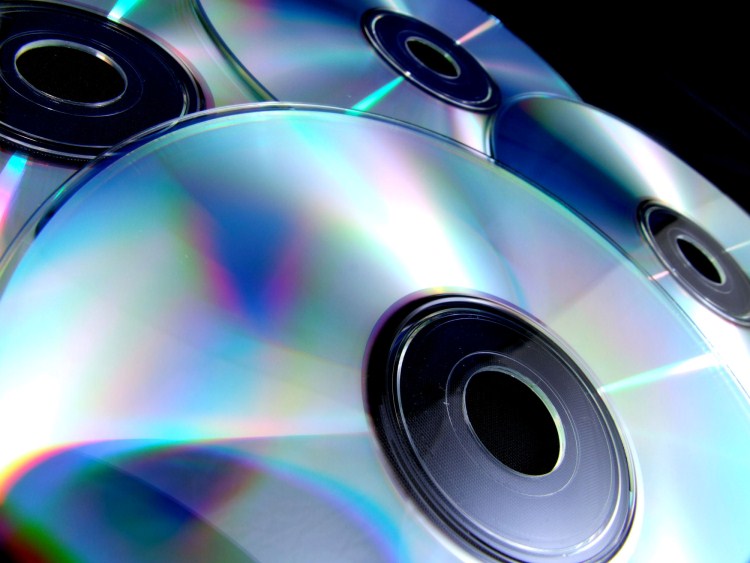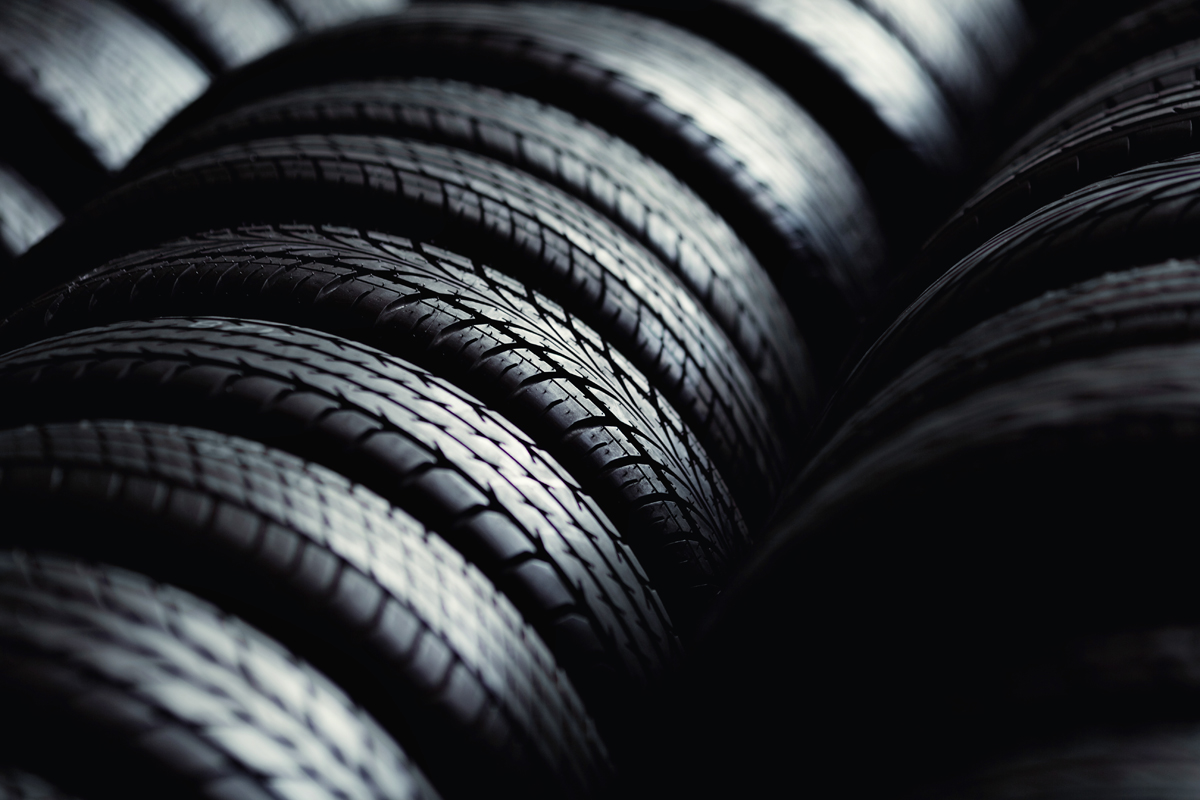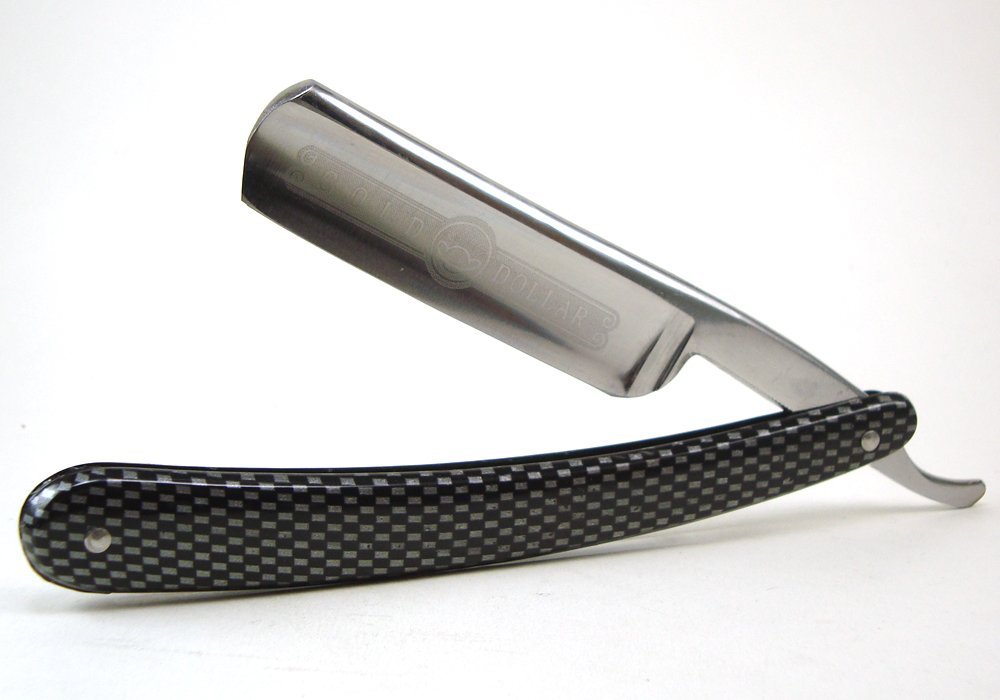The average consumer spends far too much money purchasing replacement stuff that shouldn’t need to be replaced. The problem is that most companies would rather sell you something new than teach you how to make their past products last longer.
And while the old adage may go: “If you can’t fix it, Duck (tape) it.” The truth is that duck tape can only do so much in a world of perishables and high-tech devices. The best way to ensure that your things last a long time is through plain old-fashioned common sense and proper care.
Here are 40 Life Hacks that will help extend the life of some of the most important (and expensive) things you own:
FOOD & DRINK
Wine
An open bottle of wine oxidizes quicker than some people realize. If you cannot drink the entire bottle within a week, it will start to lose its pleasant flavor. However, there are a few simple ways to extend the life of any wine (red or white).
- Tip 1: To keep any wine fresh, you can actually freeze the bottle, provided that you thaw it slowly.
- Tip 2: You can refrigerate wine to slow the oxidization process (However, it only helps keep wine for up to three days).
- Tip 3: A Vacu Vine Saver Pump can be a helpful tool to remove excess air from a wine bottle, thus hindering the process of oxidization altogether.
- Tip 4: If you have them handy, add marbles to a wine bottle to help displace some of the empty space, thus reducing the amount of air that is in the bottle. Plus it looks pretty classy.
Fruits & Vegetables
- Tip 1: While many refrigerators have a bin designated for “fruits and vegetables”, it is actually better to store these in separate bins, such as these Rubbermaid Produce Savers. These have been demonstrated to slow the process of ripening—or should we rather say, over-ripening.
- Tip 2: One bad apple really can spoil the lot. Check through all multipack bags before they go into the refrigerator and throw out any damaged or decaying fruit and vegetables. If you do this regularly, you will find that everything lasts longer.
Herbs
Dried herbs in a bottle are fine when you are cooking for yourself or in a pinch. However, the most savory recipes are made with fresh herbs. The problem with this is they have a short shelf life most of the time. A refrigerator will add a few days to these at best, but an herb saver, like a Cole & Mason, will add up to three weeks.
Berries
Berries are so good (and good for you). The biggest problem with them is they often get a coat of mold before you even remember they’re in your refrigerator. The best way to make berries last is to use a solution of one part vinegar to 10 parts water to soak them.
- Soak them for about five minutes, rinse them, and then put them back in the refrigerator. This will help some berries last as long as two weeks.
Bananas
Wrap the stem tips of bananas with plastic wrap to keep them from over-ripening too quickly.
Grandma’s Fruitcake
Do absolutely nothing, as these make excellent doorstops for generations to come.
HOME APPLIANCES
Furnace
Clean or replace the air filter in your furnace at least once a month to ensure proper airflow and reduce the amount of effort needed to pull clean air through the house/apartment. They do have extended-use filters that claim to last as long as 6 months or more, but most experts say the less expensive filters (replaced once a month) work better and help your furnace last longer.
Oven Top
The standard drip pans on an oven top can be a pain to clean, so it is common to wrap the drip pans with aluminum foil. But experts warn that this can actually short-circuit the burner leaving you with yet another thing to replace. What you can do is purchase a drip pan that is designed to be cleaned easier, like these porcelain drip pans by Kitchen Basics. These can even be placed in the dishwasher.
Clothes Washing Machine
- Tip 1: Saving water is good, don’t overload the washing machine to the very top. Not only does it compromise how well your clothes will clean, but also puts excessive stress on the agitator motor.
- Tip 2: Clean the screen inside the water hose at least once a year for optimum washer efficiency. It just unscrews from the back of the washer and is actually not that big of a deal to accomplish.
Clothes Dryer
- Tip 1: We know you’ve heard it before, but here it goes again: You should always clear the lint from the trap/screen after each use. This allows the dryer to run at its maximum efficiency, thus requiring less time to dry clothes.
- Tip 2: Dryer sheets create a gooey build-up on those screens, so wiping the screen clean with a rag can only go so far. Once every six months, clean that lint screen with soap and a scrub brush. This will keep the air flow freely and add years to your dryer’s life.
Dishwasher
One of the best ways to keep your dishwasher mineral-deposit and soap-scum-free is to run two cups of vinegar through the system every couple of months. Do this by placing the vinegar right side up in a bowl, then running it through the “light” cycle.
Refrigerator
- Tip 1: You should clean the compressor coils every 6 months to ensure your refrigerator is running at maximum efficiency. A harder-working refrigerator not only uses more energy but will also wear out more quickly. You can use compressed air in a can, but if you have an arsenal of electronics in your home, a small 1-gallon compressor will pay for itself down the road.
- Tip 2: Another way to reduce the work of a refrigerator is to take up as much empty space as possible. Some people recommend adding water jugs to the empty shelves. This gives you some extra water in an emergency, as well. You may also want to consider swapping to a smaller fridge if you find yourself with more room than food the majority of the time. The simple fact is, the less air that needs to be kept cool, the more efficiently your refrigerator will run.
- Tip 3: Take time to clean the gaskets around the refrigerator door once a year to help seal the cold air. You would be surprised at the sludge that finds its way onto that gasket.
Vacuum Cleaner
- Tip 1: Most people don’t bother, but you can reuse a vacuum cleaner bag several times before throwing it away. You simply turn it over in the trash can and dump it out as much as you can.
- Tip 2: Never allow a trash bag to go past half full before emptying, as it just makes it more difficult for the motor to inhale dirt efficiently. This is one good argument as to why it is not a bad idea to empty these occasionally, rather than wait until they are full.
- Tip 3: After a deep cleaning of your floor, plip it over and free the brush from any rug, animal, and human hair/fiber/debris. This helps to maintain the maximum efficiency of your vacuum, while also minimizing motor wear.
Microwave Oven
Keep the inside of the microwave clean, paying particular attention to the small plastic cover, known as the waveguide cover. This small cover is found on the side or top of the microwave cavity and collects food particles and grease. If this gunk is allowed to accumulate on the cover, it will eventually become warped, damaged, and need repair.
- Tip 1: One of the worst things you can do to a blender is chop ice without at least a small amount of liquid. This is very hard on both the blades and the motor.
- Tip 2: Never run a blender while it is sitting over the top of a puddle of liquid. This usually happens by accident, such as a spill, melted ice, etc.). The reason is, most blenders have cooling vents towards the bottom to cool the motor. Even if it is not pulling the liquid directly, the powerful suction can pull moisture out of the top of that puddle and into the motor along with the air. This will eventually corrode or short-circuit the internals and send your blender to an early grave.
Blender Blunders
ELECTRONICS
CD/DVD Player
It may not seem like a big thing, but you should never leave a CD/DVD in the player. This is considering that some brands continue to spin even when the disc is not playing, which can cause unnecessary wear and tear on the unit. This advice also goes for many gaming systems too.
CD/DVD-R Discs
- Tip 1: Do not purchase CD-R or DVD-R discs in bulk (a.k.a. 100-pack), unless you are a power recorder, as they have a shelf life much like flour or baking soda. The organic dye found in these discs will expire within a few years, making them unreliable for recording important data. They may act like they are fine to use, but you may be asking for trouble a couple of months down the line when you really need it to work. Purchase these on an “as needed” basis, and your important data will be more secure from the dreaded “Disc Unreadable”.
- Tip 2: Do not give up on scratched or skipping CDs/DVDs, as these can be repaired with a scratch repair kit, car polish, or even toothpaste if you are in a pinch. DiscRestorer is a nice product to have on hand if you are not as good about putting away your CD/DVDs. When you leave these out or stacked on top of each other you will likely run into skipping and freezing due to dirty, lightly scratched surfaces. For heavily scratched surfaces, Meguiar’s Ultimate Compound works great, as does JFJ Disc Repair, which is made specifically for this task.
Keep Rechargeables, Off & Un-Plugged
Many of us store our important electronics plugged in so they are ready when we need them. However, this may actually deplete the battery life quicker than if you’d just store it turned off and unplugged.
Ear Plugs to the Rescue for Busted Ear Buds
We, personally, have thrown out dozens of headphones with ruined foam inserts, just because it seemed cheaper to buy a new pair. However, if you keep a pack of earplugs on hand, these often fit just as well, last longer, and are much less expensive to replace on a rolling basis.
Wet Electronic Devices
If you are human, chances are that you have dropped your cell phone, MP3 player, or iPad into the water. However, if you act quickly, you may be able to salvage it. The first thing you should do is turn the unit off
(if it is not already), and then disassemble it as much as possible, including the battery. Wipe all visible moisture with an anti-static cloth, and then submerge the entire device into a bowl of dried rice overnight. The reason is if you turn it on while wet, you risk causing damage to the delicate electronics in your device. In the morning, it should be as dry as it is ever going to get, and it will be safe to try and start it again.
AUTOMOTIVE
Tires
All tires have a shelf life, so the older they get, the more you have to keep an eye on them for cracks and dry rot. But the best thing that you can do to help them last as long as possible is to coat them every now and then with something like 303 Tire Coating. This will protect your tires from weather and UV damage. Your automobile tires will also roll most efficiently (get better MPG) and last the longest if properly inflated and rotated as recommended by the manufacturer.
Windshield Wipers
The longevity of any rubber squeegee on a windshield wiper can be extended by keeping it clean. This is accomplished by either wet-sanding with a 1000 to 2000-grit sandpaper and then cleaning off the leftover debris with (91%) isopropyl alcohol.
Battery Life
The new AGM and Lithium batteries are true (non-maintenance) batteries, but that comes at a much higher cost to you. For that reason, many people still use old acid batteries. And there is nothing wrong with this, provided that they are given maintenance on a regular basis. Even if these batteries mention something about ‘non-maintenance’, if they are acid batteries they still require periodic re-filling in order to get the maximum life out of them. These can be checked and topped off by your mechanic, or you can buy your own filler rubber bulb and do the job yourself (in harsh temperatures, either hot or cold) these should be checked every three months (6 months for lighter climates).
Many car batteries are scrapped long before their time because they were either not kept properly charged or were run down into the negative one too many times (even just one time does a lot of damage). Leaving a light or stereo on (or even recharging a GPS, cell phone, or MP3 player) can deplete a battery quickly, and if the vehicle has not driven enough distance each day, it will not be able to recharge itself. One way to handle this dilemma is to keep your battery topped off with a Battery Tender or a dash-mounted solar power-battery charger.
Overzealous Oil Changes
Over-changing your oil is certainly better than never changing it. But we’re just here to remind you that today’s synthetic blends (or fully synthetic) rarely need to change every three to four months. So, if your car’s warranty does not require that many oil changes, do some research based on where you live, how much you drive, and the type of oil you use… as you may not need to change your oil as often as you think. Some people can get away with as long as a year between oil changes, depending on all those factors.
Running On Empty
The sediment that is introduced to your gas tank each time you fill up eventually drops to the very bottom. You can use paint filters to dramatically cut down on this if you choose. But for the most part, this sediment is not harmful, provided that you do not consistently drive your vehicle until it is running on fumes. This is because each time you do this, you are introducing that stuff into your car’s combustion chamber, which is a roadside emergency just waiting to happen. Many older cars do have a ‘fuel filter,’ but many newer ones don’t and they are not without faults.
MISCELLANEOUS STUFF
Razor Blades
Tip 1: Keep your blades out of the way of water when not in use, so they won’t rust and dull.
Tip 2: Barbers used to keep their blades fresh and clean on an old leather sharpening tool. You can do the same thing with your razor on an old pair of denim jeans. Just brush the blade in one direction 10 to 20 times, then change the direction, and do it another 10 to 20 times.
Old Paint Brushes
Trying to clean oil-based paint off of a paintbrush can be a futile experience. It is almost not even worth bothering with. Instead, try wrapping the end of the brush with aluminum foil and a sealed plastic bag to keep the paint from drying. The only downfall is this of course only works with one color.
That New Clothes Feeling
One way to make all your clothes last longer is to wash them in cold and keep them out of the dryer. Dryers wreak havoc on fabrics. Think about what you see each time you empty the lint screen–that is your clothes are slowly being eaten alive, so hang dry whenever possible.
About Dr. Eric J. Leech
Eric has written for over a decade. Then one day he created Urbasm.com, a site for every guy.
